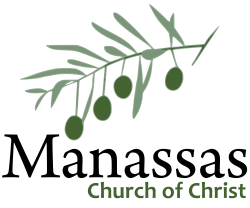
Kit Carson is one of those heroes of American history who surpasses his hype – and he was hyped. The first living frontiersman to become (without his permission) the subject of pulp novels, Carson’s real achievements far exceed his fictionalized feats of heroism. Carson was apprenticed to a saddler named David Workman when, at 16, he ran off to join a group headed up the Oregon Trail. As an apprentice he was bound into servitude for a period of years to Workman, who was bound by Law and custom to try and get him back. Workman seems, however, to fully understand Carson’s wanderlust (He would head up the same trail the following year), because the return- notice he published in the St. Louis papers read:
“Notice is hereby given that Christopher Carson, a boy of about 16 years old, small of his age, but thickset; light hair, ran away from the subscriber.....One cent reward will be given to any person who will bring the boy back.*
One cent reward money is all he is prepared to offer for Kit’s return. It is equivalent to saying “Godspeed, son, see you down the trail,” to the young adventurer. Workman didn’t really want Kit back. Any thoughtful person would know that he couldn’t have him back – not when Carson was so determined to go.
The father in the grand story Jesus tells in Luke 15 is thus thoughtful, and understands the same truth. His younger son is determined to be prodigal. And so he lets him go. But the father pays a lot more than a penny to get the son back – he pays fully a third of his wealth – a price he will never recoup, at least not in coin or kind. But we know the how the story ends. Because the young man doesn’t have to run away, it occurs to him to come back home.
What is clear in Luke 15 is that the Father is God. It is God who lets us go, knowing that without the exercise of free will we are never truly His – that if we don’t come home freely we are not home at all. We know that prodigality is sin. We know the humiliation and despair sin brings. We know the outcome of it all is death. We also know the price paid for our return – and it is more than a penny, more than a third of the value of a prosperous farm.
…you were not redeemed from your futile way of life inherited from your forefathers with perishable things like silver or gold, but with precious blood, as of a lamb unblemished and spotless, the blood of Christ. I Peter 1. 28-29
David Workman let Kit Carson go, because he wanted him to go. The Father let the prodigal son go because he wanted him to come home. God gives us free will so that we will freely love him. We exercise our free will in exactly the way the prodigal son did. God sent Jesus to die so that we could come home (John 3.16). These are the brutal, mathematical facts which remind us how much we are loved, and the central place we inhabit in the heart and mind of God.
Will we let this sink in? Will we let this determine the course of our lives? Or will we run off again down the trail. That trail doesn’t lead to a bountiful frontier, but to the pig sty. Our Father, though, no matter how far afield we have wandered, just wants us home.
* A Newer World, by David Roberts, p.56.




